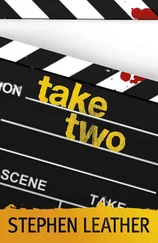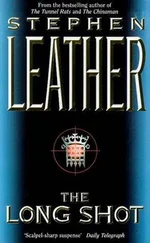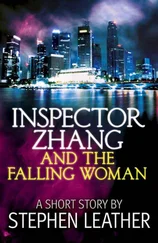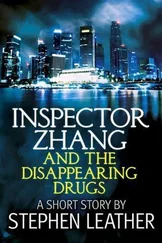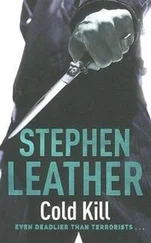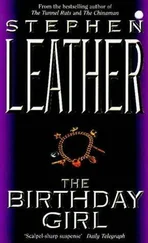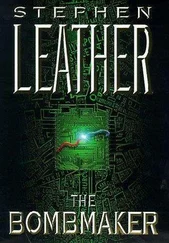‘And who the hell are you, Rajesh Patel? How did you come to be fighting for a terrorist group in Syria?’
‘I’m not a terrorist,’ said Raj. ‘I told you that when this all started.’ He held up his tumbler. ‘When was the last time you saw a Muslim drinking a single malt?’
‘So what are you, then?’
‘I’m a Brit.’
‘Religion, I meant. What religion are you?’
Raj shrugged. ‘I’m an agnostic, pretty much. But my parents are Hindu and I’d go to temple with them.’
‘So you’re Indian?’
Raj frowned. ‘I’m British. I was born in London.’
‘But your parents are Indian?’
Raj shook his head. ‘Wrong again. My mum was born in Leeds, my dad was born in Uganda. My dad’s family were forced to leave in 1972 when Idi Amin expelled all Asians from the country. They were forced to leave behind their chain of supermarkets and rental properties and had to start again from scratch in London. Dad had it rough, he was just a kid at the time. But he’s a Brit now. And he’s never even been to India. Mum’s the same. Her parents moved to the UK in the fifties. So I’m British, mate. It’s the only country I’ve ever known.’
Van der Sandt frowned. ‘Then what the fuck were you doing in an ISIS camp?’
‘They’d kidnapped me,’ said Raj. ‘They’d had some sort of accident involving a suicide vest and they needed me to patch up the survivors. I did what I could and then they said I’d have to stay the night, and that’s when your goons moved in. They wouldn’t listen to me.’ He shrugged. ‘And here I am.’
‘What do you mean, patch up survivors?’
‘I’m a doctor. I was working at a local hospital. They took me away at gunpoint.’
Van der Sandt snarled at him. ‘Bull-fucking-shit,’ he said. ‘You’re no doctor. You’ve had military training.’
‘Sure, I was a Royal Marine Commando. But I’m a doctor too.’
‘So you were a medic?’
‘Not just a medic. A doctor. I did my medical training and commando training.’
‘And you were in Syria with the Marines?’
‘No, I left the Marines a few years ago. I was working for a humanitarian agency.’
Van der Sandt drained his whisky and held out his glass. Raj took the bottle over and refilled the tumbler for him. ‘You want to tell me why?’ asked Van der Sandt.
Raj tilted his head on one side. ‘Why I left the Marines, or why I was doing humanitarian work?’
‘Both.’
‘The people of Syria need help,’ said Raj. ‘What’s happening to the Syrians is a tragedy. A true tragedy. And the world is turning their backs on them.’
‘Had you served as a soldier in Syria?’
‘No, just Afghanistan. But when I left the Marines I worked at a hospital in London and I met a few doctors from Syria. They told me the horror stories of what was happening there and I wanted to help.’
Van der Sandt sipped his whisky. ‘And why did you leave the Marines?’
Raj shrugged. ‘It’s a long story.’
‘Are you in a rush?’
Raj smiled thinly. He sat down in one of the winged chairs and took a long drink of his whisky. It was smooth and warm, though he couldn’t see how it could possibly be worth a hundred thousand dollars a bottle. ‘I had a run-in with the powers-that-be over the value of human life,’ he said. ‘I wanted to treat an Afghan casualty, my sergeant disagreed.’
‘You were an officer?’
‘I had the rank of lieutenant. But my combat experience was limited so often I would defer to my sergeant. We’d been in a firefight and I wanted to treat an injured Afghan. My sergeant told me not to. I ignored him and said sergeant put two rounds into the man’s chest. It was murder. Cold-blooded murder.’
‘It was war.’
Raj shook his head. ‘The firefight was over. No British lives were at risk. The Afghan was no threat and he needed my help.’
‘And?’
Raj shrugged. ‘When we got back to base I reported the sergeant. But no one cared. The rest of the men who’d been on the patrol backed up the sergeant. Said he’d shot the Afghan because he was about to fire his weapon. It was bollocks, his AK-47 was on the ground. The top brass knew they were lying but no one cared. So I quit.’ He shrugged again. ‘It wasn’t how I’d planned to end my military career, but I didn’t see that I’d any choice.’ He drained his glass, then stood up and refilled it. He sat down again and sipped his whisky. ‘What you said in the hangar, when you first brought us here: I get it. You wanted revenge. But you’ve got the wrong man.’
Van der Sandt grimaced. ‘It looks that way,’ he said quietly. ‘I owe you an apology.’
‘And what about the families of the men I had to kill to get here? Are you going to apologise to them, too?’
Van der Sandt drank his whisky. ‘This has turned into what my military friends would call a clusterfuck. It’s not what I intended.’
‘What did you think this was going to achieve, anyway? Did killing them make you feel any better?’
Van der Sandt nodded. ‘Actually it did. I couldn’t have lived with myself if those animals had continued living. You know what they did, right? They attacked a beach resort. They shot at women and children with Kalashnikovs and they kept on killing until they ran out of bullets. How would you feel if your family had been killed like that?’
‘I hear you,’ said Raj.
‘My wife, my son, two daughters. Butchered on a beach. And for what? What did they ever think that would achieve? If they attacked an army base, or assassinated George W. Bush or your Tony Blair, then I would have understood the logic. It would have made some sort of sense. But what they did?’ He took a long drink of whisky. ‘They deserved it. And yes, I’m glad they’re dead and I’m glad that I killed them. But about you, what can I say? I’m sorry I dragged you into this. But sorry really doesn’t cover it, does it?’
He pulled open a desk drawer and took out a cheque book. He picked up a pen and began to write on a cheque.
‘I didn’t think anyone used cheques these days,’ said Raj.
‘Well the Queen of England does, and this is the bank she uses,’ said Van der Sandt. ‘The men who were working for me, their families will be well looked after. They all have iron-clad contracts and if anything happens to them …’ He shrugged. He finished writing the cheque and stood up. He picked up the rifle and walked over to where Raj was sitting. ‘Maybe this will go some way to making up for what I put you through,’ he said.
He handed the cheque to Raj and went back to the desk. Raj’s eyes widened when he saw it had been made out for five million dollars. ‘I can’t take this,’ he said, looking up. ‘And even if I could, it wouldn’t make it right. You’re going to have to pay for what you did, and not with money.’
Van der Sandt waved away his protests. ‘Give it to the hospital in Syria. Do some good with it. I don’t expect you to forgive me. That’s not what it’s about. I know there’ll never be any forgiveness for what I did. I did it because I had to, because I wouldn’t be able to live with myself if I didn’t get revenge on the men who took my family. Now I can die a happy man.’
Raj looked down at the cheque. Five million dollars. He shook his head in disbelief, then flinched at the sound of a gunshot. He looked up and saw Van der Sandt staggering back, the left side of his head blown away by a shot from his own rifle, which clattered to the ground. He fell against the desk, blood pouring from the fatal wound. Raj jumped to his feet but realised immediately that there was nothing he could do. Van der Sandt was dead before he hit the floor. Raj’s hands were shaking as he put the cheque into his pocket.
Читать дальше

